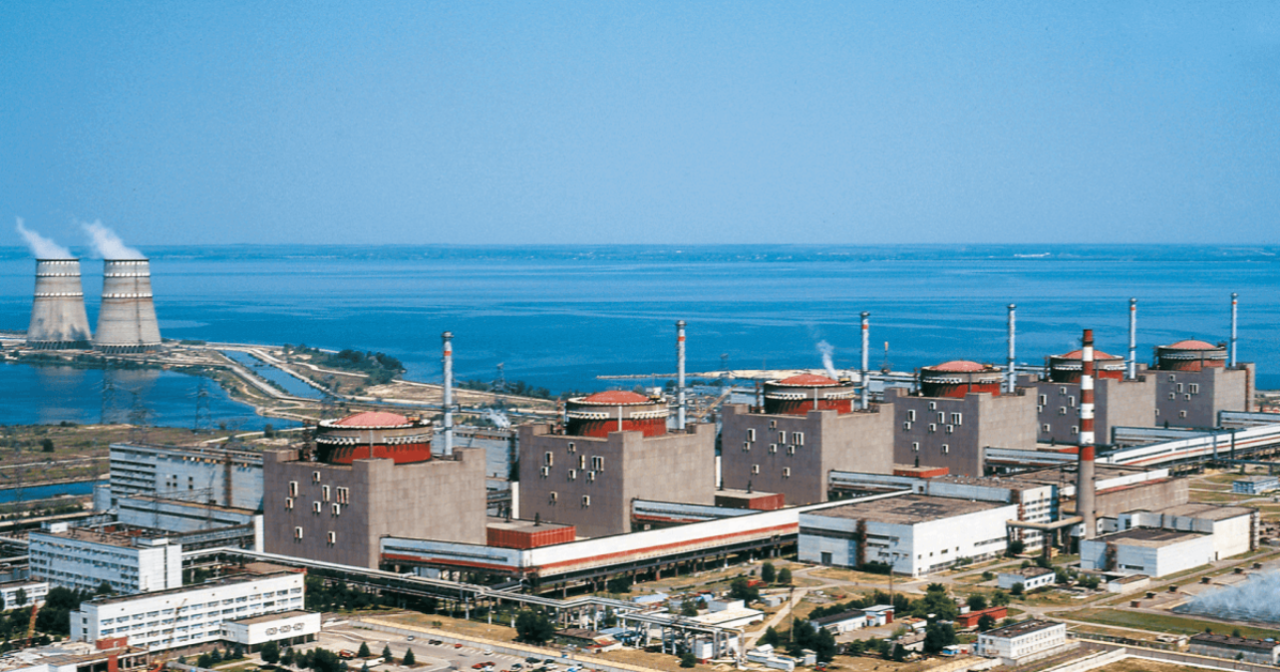 International Atomic Energy Agency (IAEA) Director General Rafael Mariano Grossi said nuclear safety and security remain precarious at the Zaporizhia NPP (ZNPP) in face of the ongoing military conflict. Over the past week, the IAEA team of experts stationed at the ZNPP have heard military activities on most days, including artillery and rocket fire some distance away, as well as small arms fire both near to and further away from the site.
International Atomic Energy Agency (IAEA) Director General Rafael Mariano Grossi said nuclear safety and security remain precarious at the Zaporizhia NPP (ZNPP) in face of the ongoing military conflict. Over the past week, the IAEA team of experts stationed at the ZNPP have heard military activities on most days, including artillery and rocket fire some distance away, as well as small arms fire both near to and further away from the site.
IAEA experts reported that there was an air raid alarm with restrictions on movement outside of buildings for about 90 minutes, which the ZNPP informed the team was due to drones being present in the area of the cooling pond. The experts did not hear any explosion during the period of the restriction on movement. Another air raid alarm was heard, again restricting outside movement and resulting in the team’s planned walkdown within the site perimeter being postponed.
The persistent dangers facing ZNPP were underlined in April, when the site was targeted in several drone strikes. The IAEA said it is also aware of reports alleging that a training base for drone operators as well as drone launch pads have been deployed near the ZNPP’s reactor 6 and its training centre. However, IAEA experts have not seen any evidence of drones being launched, or the presence of training facilities or launching pads, within the site perimeter. They have requested access to the rooftop of a nearby laboratory building and ZNPP says the request is under consideration.
The IAEA team has continued to conduct regular walkdowns across the site including to its two fresh fuel storage facilities as well as within the site perimeter where the experts performed radiation monitoring, with all the measured values being within the normal range. The experts also measured the water levels of the site’s sprinkler ponds, confirming that there is enough water available to provide cooling to the reactor units in their current cold shutdown state.
Regarding the staffing situation at the plant, the ZNPP informed the IAEA team that it currently has about 5,000 staff, which represents an increase from last year, but is still fewer than it had before the conflict. As previously reported, the ZNPP has informed IAEA that that nominal staffing levels for NPPs operated by Rosatom are significantly lower than the corresponding staffing levels of Ukraine. The plant said it was continuing to hire personnel and currently has 800 open positions. Nevertheless, ZNPP said that it has recruited enough qualified staff, including the required number of authorised operators for the main control rooms, given the current shutdown status of the units.
However, IAEA said its experts continue to be prevented from freely talking to main control room staff, affecting the Agency’s ability to independently assess the knowledge and experience of personnel that are essential to maintaining nuclear safety at the ZNPP.
For maintenance of equipment and systems, ZNPP said it was using more contractors than in the past. ZNPP also said it had hired some more training instructors. “We are continuing to monitor the staffing situation closely, as it is of vital importance for nuclear safety and security. For this purpose, our experts would also require an opportunity to discuss with the operators of the main control rooms, and other qualified staff,” Grossi said.
Rosatom issued a statement saying ZNPP has been subjected to an unprecedented series of drone attacks, creating a direct threat to the plant's security. It listed the series of drone attacks in April. “Fortunately, there are no critical damages or injuries, the radiation background at the station and the surrounding area has not changed and does not exceed the natural background values.”
The statement added: “Rosatom categorically condemns the unprecedented attack on the NPP and its infrastructure”. It called on the IAEA leadership, Director General Grossi, as well as the EU governments “to immediately respond to the direct threat to the safety of Zaporizhia NPP and categorically condemn the attempt to escalate the situation around the largest nuclear power plant in Europe”.
Meanwhile, ZNPP said hydraulic tests of the pipelines of the city's heating networks (design) will be held in Energodar on 14-15 May. Such testing take place every year to prepare a heat supply system for the new autumn-winter period. The task of hydraulic tests is to identify the worn-out sections of the pipelines for their subsequent replacement.
Image courtesy of Rosatom



